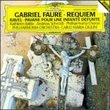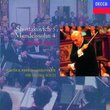Ogdon and Gilels put Beethoven's Variations on display
A. Braid | New York, NY | 07/08/2005
(5 out of 5 stars)
"Beethoven's WoO ('werke ohne opus', works without an opus number) numbers scare away a lot of listeners. They say, "Since Beethoven didn't care to give an opus number, he didn't care about it" or "Beethoven thought it was immature or second rate music." However, these are dazzling sets of variations, probably originating from Beethoven's live improvisations and therefore were not conceived to be published works (though most of them were published soon after they were written). Among these variations are some of the most challenging, creative, and wildly ingenious developments of piano technique of the 18th and early 19th centuries, the very same elements that would lay the foundations for Beethoven's 5 great Piano Concerti, his unsurpassed body of 32 piano sonatas, and his use of the piano in chamber music.
And so I disagree with Ms. Gerber's remark that Beethoven didn't take these pieces very seriously or that there are no hidden masterpieces here. Many of the variations are masterpieces in and of themselves! While the Variations WoO 65 and 66 (1790-1792) are clearly simpler and more tradiationally 'Viennese' than the later WoO 78 'God Save the King', WoO 79 'Rule Britannia', and WoO 80 'C minor'(1802-1806), there is quite a feast for your ears in each piece. These virtuosic variations are perfectly suited to the remarkable interprative and technical skills of two great Beethoven performers, John Ogdon and Emil Gilels. [Certainly, If people would venture to name the people who could overcome any technical barrier on the piano, Ogdon's name would be at the top of the list.] While this is mostly Ogdon's time to dazzle us with his fancy fingerwork, Gilels performs the best known of these works, the C minor Variations WoO 80 and the D major 'Turkish March' Variations op. 76 (1809), and also puts on an amazing show. You'll hear cascading scales and arpeggios, octave passages, pedal tones, trills, rapidly repeated notes, fugues, beautiful harmonization and voice leading, all of which come up in Beethoven's sonatas. (For examples, from WoO 79 the second variation foretells the opening of Sonata op. 109; the third variaion of cascading arpeggios is similar to a passage in the last movement of the Waldstein Sonata. Further examples abound, though the drama and form of these variations does not compare to the greatest among the sonatas.)
The EMI producers were wise to put each variation on its own track, just in case your ears want to hear those stunning pyrotechnics or harmonic twist again.
The liner notes are informative and concise though do not attempt, as I have, to portray the importance and ingenuity of these works. With 13 complete sets of Variations in 2 CDs, this disc is a must for a Beethoven collector, lovers of piano music, and will provide many hours of fun and satisfying listening for any music lover. This is a stunning EMI re-issue compilation, which at about 140 minutes, is a bargain. We are also fortunate that EMI has re-issued remasterings of several other great Ogdon recordings (Rachmaninoff piano music, Shostakovich concerti). Get this while you can, and then look for more Ogdon and Beethoven Sonatas."


 Track Listings (67) - Disc #1
Track Listings (67) - Disc #1






